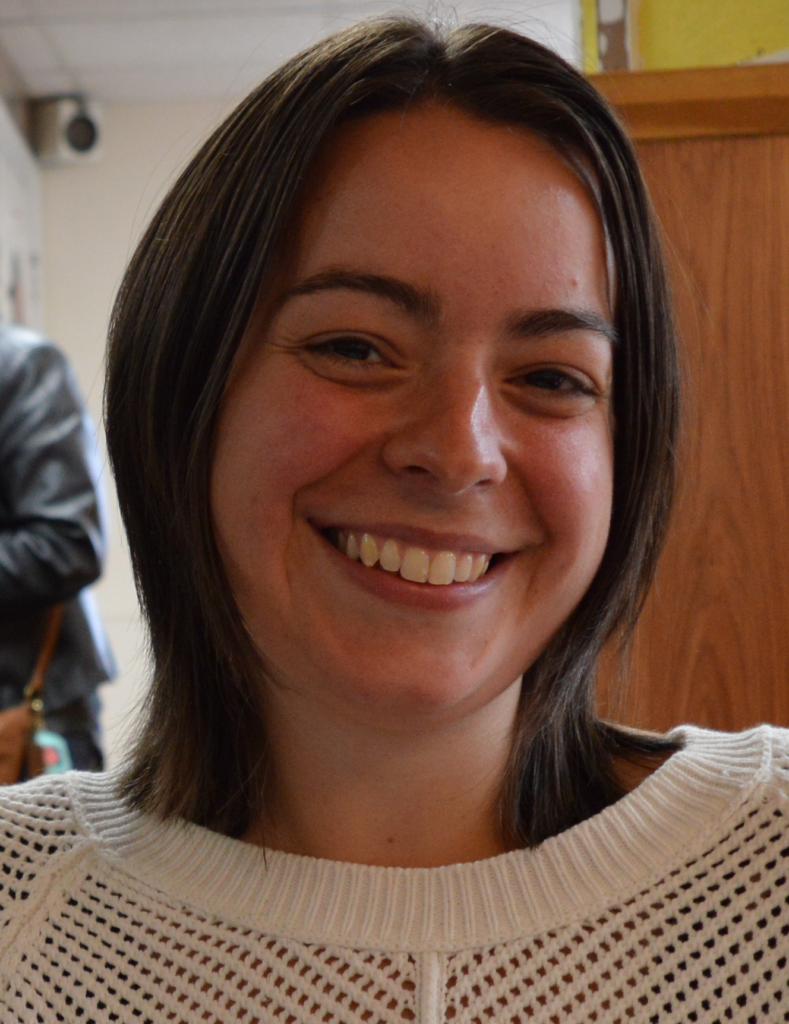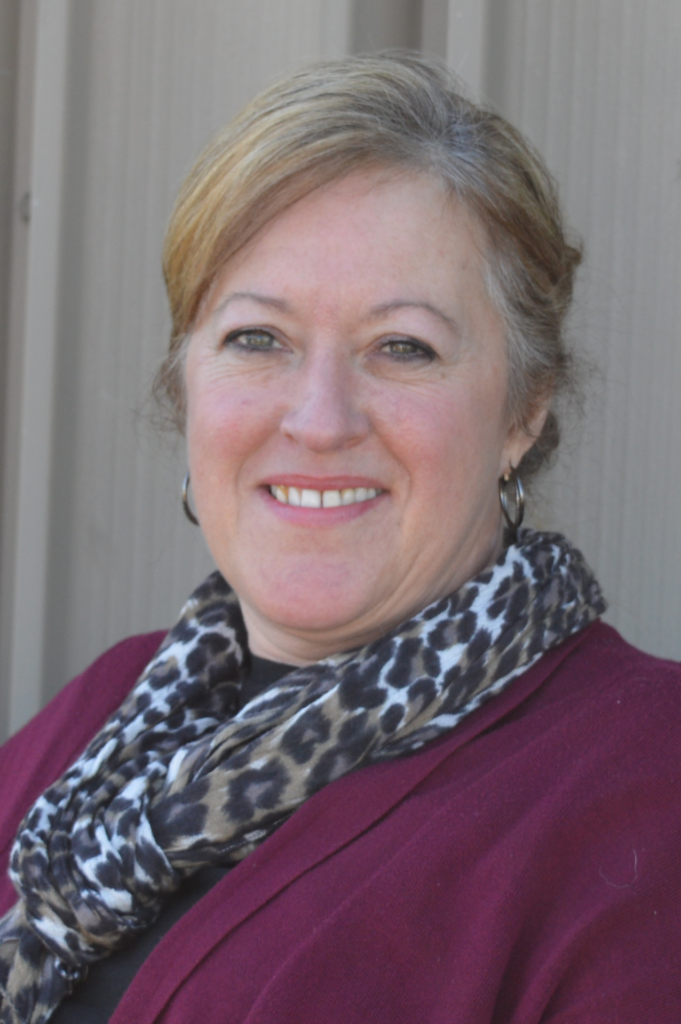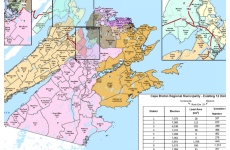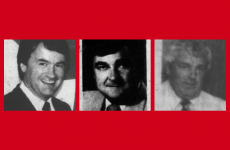District 9
Lois MacDougall
Born in Glace Bay, District 9 candidate Lois MacDougall has lived there her whole life, with the exception of a period, during her childhood, when she lived at the Shriner’s Hospital for Crippled Children in Montreal.

Lois MacDougall, District 9
I was born with no hip and ultimately, over the years, many operations and stuff, I was able to come back home to my parents.
She graduated from Morrison High School and went to what was then the University College of Cape Breton (UCCB), where she enrolled in the business program with a concentration in accounting. Later, she completed a Bachelor of Arts in Community Studies (BACS) degree with a certificate in crime prevention through social development.
For the past 12 years, she’s worked with addiction services.
Ready to Be All That
MacDougall, a mother of two, said she has been considering the possibility of a council run for some time, and actually wishes she had run in 2012, when incumbent councilor (and deputy mayor) George MacDonald was returned by acclamation.
“That was very unusual for us,” she said of the lack of competition.
I think that everyone gets complacent and stagnant, and that’s unfortunate but it’s a reality and I think fresh, new ideas need to come to the table.
MacDougall herself, who said she has been “heavily involved” in her union over the past 10 years, recently stepped down as president of her local, in part to make way for “a new face” and in part because:
[I]t’s time, I’ve got to give back to my community. I’m just ready to be ‘all that’ for my community. I love Glace Bay and I’ve seen it deteriorate over the last number of years…[S]omebody needs to be advocating for our community and I want that to be me. I think I have a really good voice and I think I have a lot to give and I think I can do very well in that position.
Drugs
The issue at the top of her list this fall is her community’s drug problem, the solution to which, she said, must involve the entire community:
[O]ne of the things I learned in crime prevention through social development is people have to take ownership of their community and in order to do that, we need everyone’s help—it can’t just be about me, it can’t just be about the police, it has to be a community effort.
Working with addiction services, she said, she has seen “the struggles of people with addictions and it’s not just about addictions, it’s about…the co-relation between crime, social justice and poverty and addiction…”
We have many people that have nowhere to go. Many people who don’t have enough food. And many people who maybe weren’t brought up in the best of circumstances and perhaps never had a chance from the get-go. Like I said, it’s a broad spectrum of issues and usually one relates to the other, along with mental health issues as well.
One person, she said, can have “many demons,” more than a single agency or department can handle. To deal with this web of related issues, MacDougall thinks the CBRM needs a task force, made up of people with expertise in a variety of areas like mental health, addictions and housing.
Ice time
Another issue for MacDougall—a related issue, in fact—is access to recreational facilities.
Candidly, I’m going to speak of the Bayplex, for instance…[T]he Bayplex should be a multi-faceted recreation facility, it shouldn’t be just available to the minor hockey. It should be available to everyone.
The baseball fields, they’re under-utilized. There’s a beautiful baseball field up there at South Street,…a corner of that could be a basketball [court]. On the other corner they could have tennis, it doesn’t have to be focused on one thing. And when you give people a venue, people do better. They do better physically, emotionally, mentally, you name it…
Infrastructure
Like virtually every other candidate knocking doors this fall, MacDougall has heard about infrastructure—of course, she’s also seen it:
The roads are, for the most part, deplorable and the sidewalks have disintegrated to the point where, there’s no sidewalk there anymore, it’s just dirt.
And I see a couple of issues around water—the culverts, the manholes—some homes have been flooding because of the rain or water from the snow melting going into the basements in people’s homes.
But MacDougall said she’s tired of politicans who seem to take action on such issues only during election periods:
Now that there’s an election on, everybody’s jumping to get this done and that done, that’s unethical. Especially when this could have been done maybe…three years ago. Why does it have to depend on election time? If you’re proving to the population that you’re doing what they’re looking for, then you don’t have to worry about election time…you’ve already won votes, you’ve already done the work…Well, everybody does it, I guess. But I promise I’m not going to do that. I’ll be working on stuff right from the get-go.
Sister MacDougall
MacDougall said her background in accounting and experience as treasurer of the Cape Breton District Labor Council are both skills she will bring to the council table.
As for being a woman running for council, she said:
People get excited when women take leadership roles. I think it takes a lot of guts, a lot of ingenuity and I think it just shows our strength. We’re not afraid. It’s not something that is going to make us timid and shy back from comments or shy back from discussing the real issues and being honest about them.
And there are some CBRM initiatives and programs that are specific to women, said MacDougall, areas in which, she thinks, “a woman’s view is ultimately important.”
District 11
Kendra Coombes
Kendra Coombes got her undergraduate degree in political science from CBU and her MA from Dalhousie (with a concentration on Canadian politics and human rights) and then…came home to Scotchtown because she didn’t “want to be part of the problem” of outmigration.

Kendra Coombes, District 11
I decided, you know what? I’m going to move home and try to make a life here and make this community as strong as I possibly can.
A proud member of the New Democratic Party (NDP), Coombes is president of the Cape Breton Centre riding association, and says so straight up:
Some people try to hide their political affiliations and I think that’s…bizarre, especially when people say they’re going to council…I never understood that concept…You’ve just made politics, something that I love, very dirty…
Everything we do is political. You know, when you get into your car, that’s political…your insurance, how old you are when you get behind the wheel, whether or not you buckle up your seatbelt. I mean, even buying a pillow is political — ‘Do not rip this tag off.’
Ports & Mines
As for why she’s running for council in District 11 this fall, Coombes said:
I felt there was a lack of leadership in my community and I don’t want to take anything away from the other candidate when I say that, I’m just saying that we need new ideas. I see the same things over and over again happening; the same decisions are being made—it might look like a new book, but the story is still the same. The port is a huge focus but we don’t know much about it, and that worries me. And there seems to be not many people standing up in council saying, ‘Let’s hold on a minute.’
I also don’t see anyone saying anything about Donkin Mine and that’s concerning me…The man who owns the Donkin Mine, [Chris] Cline, has over $6 million worth of fines in the U.S. for safety violations. And there’s places in Virginia where he was that are now a disaster—there’s miners dead and nobody is saying anything.
If our councilors are not advocating on our behalf, are not saying, ‘Well wait a minute? Is there a problem here with the Donkin Mine? Is there a problem here with the Port? Why don’t we know much about either one?’ That concerns me…
Drugs
In her own home town of Scotchtown, Coombes has a very specific concern:
[W]e have a huge drug problem here…I’m 27 now, I became aware of this drug problem probably, oh, my whole life. My whole life I was aware that there were drugs in this community, that there was alcohol and substance abuse in this community. And we don’t have a proper youth program…There’s been no proper youth program because if there was, this problem would not be rising, continuously. We wouldn’t see it blatantly in our faces, in our town.
She recently toured the newly expanded Whitney Pier Youth Club and said she was “blown away” by Chester Borden and what he’s accomplished there. She’d like to see a similar facility in her community.
Buses
But if there’s one issue above all she’d focus on if elected this fall, Coombes said it’s transit:
Transportation is very important. We’re supposed to be a ‘community of communities’ and we can’t get to the other communities. It takes you two hours to get to Sydney Mines. We think our bus is bad, you go further, maybe to Florence, you’re not getting a bus…
She dismissed the free bus service offered in the CBRM this summer as “ridiculous,” saying it did nothing to address the real problems with the system — routes and scheduling. As someone who at one point worked in Sydney, she said she was forced to buy a car because the bus schedule didn’t jibe with her work hours.
Coombes said there are 400 jobs waiting to be filled at Glace Bay’s Convergys call centre, where transportation is such an issue for employees the company was looking into providing its own.
But she also thinks there’s a stigma attached to public transit in the CBRM that she doesn’t see in Halifax:
I get on the bus in Halifax and you have people in expensive suits and in expensive designer dresses and then you have the college students…and then you have the men or the women who are just getting off work from a Super Store or a Sobeys, and they’re all on the bus together. And many times you also have the homeless—but you have all walks of life on that bus. You’ve seniors, you have [baby] carriages and people in wheelchairs. Meanwhile, you get on a bus here and you know it’s mostly the low-income, because there’s a stigma.
Remember Thatcher…
Coombes, who said she’s benefited from the presence of three strong women in her life—her mother and her two grandmothers—believes it’s important to have women on the CBRM Council, but not for the reasons you might think:
It has nothing to do with the female perspective, the female voice—I mean, we can look at Margaret Thatcher in England and say, she certainly didn’t speak for all women. That’s not how I see myself. But it’s looking at council and going, ‘Oh, there is someone that is female.’
It’s like, as a youth, looking at council going, ‘Nobody there represents my generation. My generation’s been left out. So how can they know anything about [us], and our struggles, when there’s no one representing us? How can they talk about our issues and our troubles when we’re not being represented there?’
District 12
Tera Camus
District 12 candidate Tera Camus spent years covering municipal council as a reporter for the CBC and later the Chronicle Herald.

Tera Camus, District 12
I have the advantage in a big way because I was there from the get-go of amalgamation. My baby was brand newborn, I was a breastfeeding mother and…[CBRM Mayor John Coady] would have these marathon meetings, so I’d have to bring my baby…I’m the only actual reporter, I think, who ever…had a breastfeeding baby in one hand and a notebook in the other…And I covered every by-law, every debate, every issue.
Camus, a single mother of two, today works for the federal government, doing stints at Service Canada and Immigration. It’s not an uncommon work situation in 2016, she said, when “a lot of businesses and government agencies have figured out how to get around unions by hiring on contracts. If you wanted to work at McDonald’s full time, or Tim Hortons, or Walmart or whatever, you can’t—they won’t let you!”
Asked why she decided to run for council this fall, Camus said bluntly:
[T]he council sitting right now has generated a lot of problems for this community. They’re lying to the community, they are manipulating people with false hopes on fictional port dreams that [are] laughable outside this region. And people are hoodwinked.
She is particularly critical of the councilor she hopes to replace, District 12 incumbent Jim MacLeod who, at 75, is 10 years older the mandatory retirement age for CBRM employees:
[E]very time a contract comes up in the CBRM for non-union and unionized staff, there’s a mandatory retirement age of 65 in there that none of them have got rid of and yet, he’s sitting back at 75.
Another Pier issue that concerns her is the decision to close the community’s fire station:
[I]t just boggles the mind that a community the size of the Pier is not going to have immediate, response.[I]f there’s an accident on the overpass, that means they have to come from the Ashby station and go up the long way—up through the Spar Road, up to Inglis Street, down past the football fields crossing about a dozen sets of tracks.
BMX Unlimited
But Camus’ campaign is not simply about being negative—she also has ideas she’d like to see realized in the CBRM. One of them is a concept she herself presented to council several years ago during a special youth committee meeting:
I actually made a presentation about building a BMX park down on the Open Hearth site…[T]he provincial government was on board, they had a piece of land they were willing to give me to make this happen, that was going to be their contribution, plus do the engineering, the groundwork, to have it built above ground.
The proposal received no support from the councilors, one of whom, she said, announced they had to “fix the potholes” before they could think of building a BMX park.
[A]nd this was a special meeting designed for youth,” she laughed. “We’ve got the world champion BMX star — the world champion — in Truro, Drew Bezanson …He is amazing. He’s a superstar from little old Truro.
All that was needed from the municipality, she said, was $5,000 to hire a Canadian company that specializes in the construction of BMX parks, but that was not forthcoming.
Camus also cites the Ferris Wheel that was set up on the boardwalk for New Year’s Eve 2016. People lined up to ride it on “one of the coldest days of the years. Why couldn’t we have a permanent Ferris Wheel on our boardwalk?” Such an attraction might also be helpful to the cruise industry, which Camus said suffers because there is so little to do in downtown Sydney.
We’ve just got to think differently. We need a changing of the guard.
The White Men
Asked if she felt it was important to have women on council, Camus said:
It’s extremely important. But…it’s very difficult for women to be elected in this community… Generally speaking, it’s tough for women to get elected, it’s tough for people of color to get elected…We like the white men. And if they have money, even better…Women bring to the table an expertise, maybe a more demanding level of scrutiny, essentially. The women elected there have contributed well (and some of them didn’t) but it’s so important to have that mix of men and women around the table to ensure that all aspects of the community are being addressed…
Camus is far from convinced much will change this fall, citing the low voter turnout among younger people, but said she felt she had to take a run at a council seat:
I have to offer, I just feel that my community is dying and I have to bring something to the table, I have to try to help, it’s my nature, it’s always been that way. I love it here, I don’t want to move but I also have to face the idea, in the next couple of years, do I want to stay in this community? I’ve thought about selling my house already. I thought, what is here for me and my kids? It’s very difficult.
District 12
Kim Sheppard
Kim Sheppard has lived in Whitney Pier all her life with the exception of about a year when, she said with a laugh, she “went to Ontario to find that dream [like] everybody did back in the ’80s and 90s.”

Kim Sheppard, District 12
Separated from her husband at a young age with two children to raise, Sheppard said on her return to the Island she went on social assistance, lived in low-income housing and “went through just about every system that ever could be.”
“I knew, although I’d just moved back to Cape Breton and didn’t have a lot going for me then, what I had to do,” she said. And what she had to do was go back to school, which she did, babysitting during the day and attending classes at night with the help of both social assistance and her family.
Upon graduation, she worked as a waitress and then at a call centre before taking medical courses in the evening and getting hired by the Nova Scotia Health Authority as a “casual.” She spent six years as a casual with both mental health and addiction services (which used to be two separate divisions but have since been combined).
When they asked me to go work in Glace Bay, I was there; when they asked me to work in New Waterford, I was there; North Sydney, wherever. Because I know what it takes, you’ve got to work for something you want.
Her dedication paid off about four years ago when she was hired, full time, as an “administrative professional” with the authority’s impaired driving and anti-smoking programs. Said Sheppard, “I love my job.”
When she began working, Sheppard became involved in her local union, the NSGEU, serving as secretary for three years, which led to her joining her local labor council, a position she’s held for the past five years.
“We’ll learn how to do some gyprocking!”
The mother of two and grandmother of two said she’s always “had a thing for advocacy”—combing the job listings for jobs for other people and posting them on Facebook, helping friends write resumes—but her first real taste of community involvement was with Habitat for Humanity:
I was in church one day with my sister…and…the minister said, ‘They’re looking for volunteers for Habitat for Humanity. They’re building a house in Whitney Pier’…She was asking would anybody volunteer and I tapped my sister and said, ‘Donna, we should volunteer…we’ll learn how to do some gyprocking and fix up our own homes!
Her sister agreed and they volunteered but soon discovered that gyprocking was in the rather distant future, first was fundraising. Sheppard ended up on an interfaith committee that created a board game called “The Pier,” (artwork by Keith Baldwin) and even staged a “live” version of the game as a fundraiser during Action Week.
Stop Signs & Garbage Cans
Sheppard said her dealings with the municipal government have left something to be desired.
Things weren’t that bad, but I had asked for a couple of things in our neighborhood…This is what got me riled up to do politics. It’s been two years and I couldn’t get a stop sign or a garbage can.
The one was intended to stop cars from speeding up a hill near her home, the other to stop people from dumping garbage in the lot of a nearby business. It’s a fight Sheppard said she plans to continue, but it’s not the only problem she has with local government. She said the biggest issue for her is transparency—or the lack of it—and that “nobody speaks up on issues.”
I find that council—I watch it on TV all the time, I’ve attended a few [meetings], I’ve rallied at a couple—I find a lot of it is just…agreeing with the crowd. And I’m one, you can ask anybody on any committee I’ve been on, I drive people nuts with questions. And if I believe in something, I will argue tooth and nail. Either somebody’s going to come to my side, or I’m going to go to their side because they’ve convinced me that that’s the right way to go. I’m not saying that I’m that stubborn I would never agree with anybody just to be right, I will agree with you but you’ve got to prove to me why I should.
It’s a trait she promises to bring to the council table if elected this fall.
Dream Council
As for the need for women on council, Sheppard said:
Definitely. Oh, definitely. I think women should be on council because, women have a different way of looking at things than men. It’s been since the beginning of time, women aren’t so quick to make rash decisions…
Sheppard cites the case of Archibald’s Wharf, suggesting that if there had been more women on council, they might have been more sensitive to the feelings of the citizens upset about the sale.
I think men tend to put business first, then emotion where women are emotion first, then business. And you need the balance of the two.
Her “dream council,” though, would not just be balanced in terms of gender, but also in terms of age and experience:
Some men, some women and some youth, so you’re getting…experience from elderly, you’re getting stability, but also you’re getting new ideas from the youth…Even in our own union and our labor council, we don’t have anyone under 30 and I’m always pushing, ‘We have to do something to attract youth.’ They’re going to be running the world soon and we want them to carry on all these important matters.







